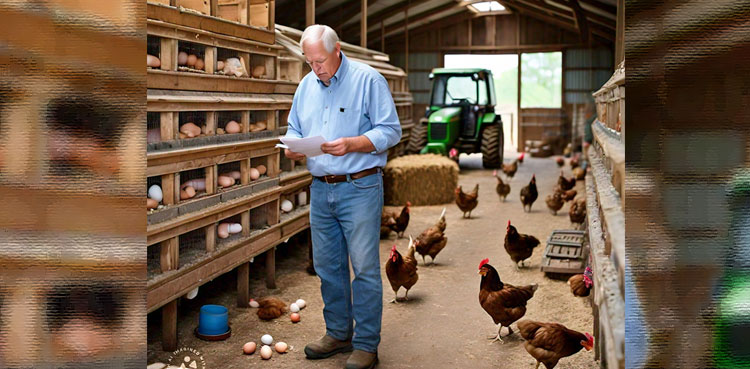”
Some U.S. farmers who once raised chickens for Tyson Foods to slaughter are shifting to sell eggs instead after the meatpacker closed six plants, a move that left local suppliers with limited options for work.
In one example, former Tyson suppliers in central Virginia formed a cooperative that will produce cage-free eggs for Indiana-based Dutch Country Organics on a dozen farms, after Tyson closed its nearby Glen Allen plant last year.
In Dexter, Missouri, the world’s biggest egg company, Cal-Maine Foods (CALM.O), opens new tab, in March finalized a deal to buy another chicken meat plant Tyson shuttered. Cal-Maine recruited local farmers to produce eggs.
The switch to eggs, which carries high costs, reflects the tough choices former Tyson suppliers around the country must make following the company’s 2023 decision to shut plants in an effort to return to profitability in its chicken business after misjudging consumer demand.
Egg farming also comes with risk as lethal bird flu infections have hit laying hens harder than broiler chickens raised for meat. The virus flared up for a third year this spring, resulting in the culling of nearly 10 million hens involved in commercial egg production so far this year. Cal-Maine culled about 1.9 million, opens new tab birds this month after an outbreak in Texas.
MILLIONS TO UPGRADE
Former broiler growers must spend millions of dollars on barn and equipment upgrades to produce eggs, a notoriously volatile market, 18 poultry producers, government officials and industry experts told Reuters. Last year, egg prices tanked after reaching record highs due to the worst-ever outbreak of bird flu in poultry.
“It’s a very expensive investment from the grower,” said John Bapties, who is president of the Central Virginia Poultry Cooperative and raised chickens for Tyson for 20 years before the Glen Allen plant closed.
His cooperative is placing hens in barns that formerly housed broiler chickens, and expects to sell cage-free eggs produced by about one million birds to Dutch County Organics within a year, he said.
Farmers needed to replace dirt floors in barns with concrete and install nesting systems for hens, among other costly renovations.
Taylor Lee, a former Tyson grower in DeWitt, Virginia, said he decided against the switch. He will focus on raising crops while keeping his poultry barns empty for now.
“They’re painting a pretty picture with that co-op but it’s $2.8 million roughly to upgrade my farm to egg production,” Lee said.
Roger Reynolds, another Virginia farmer who supplied broiler chickens to Tyson, said he is considering producing eggs for Braswell Family Farms. His daughter found work there after
Tyson’s plant closure eliminated her job.
Producing eggs means a different way of life, Reynolds said. For one thing, hens lay most of their eggs in the morning, meaning farmers cannot go to church on a Sunday without checking their barns first, he said.
”






